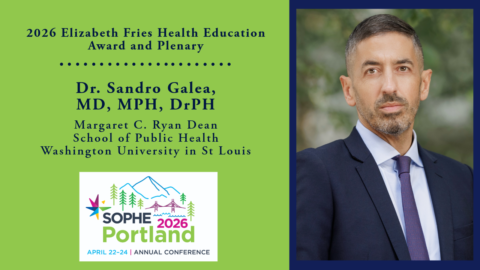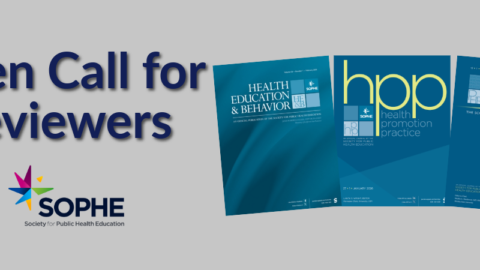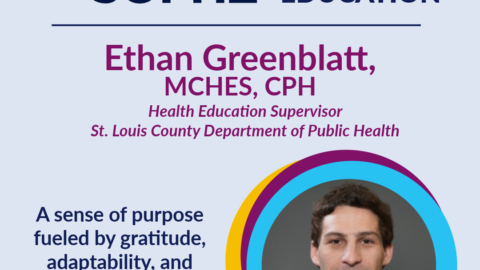
There are many leaders and educators in the health industry. Many dedicated to supporting students and helping others. But what truly makes a health educator impactful to the people they serve? There are many answers.
Jonah Neville, a college health educator specializing in substance use education, has discovered the keys to his successful impact on students: vulnerability and personability.

“I truly just try to be the professional for folks that I needed when I was a student,” he said.
Neville shared that he, in fact, struggled with substance use in college, eventually going sober for a few years.
“I didn’t have the resources, and especially in the realm of substance use,” he recently said. “When you struggle, unless you find a community of folks also trying to cut back, it gets really isolating.”
This experience, along with his mentors, drove him to apply to graduate school to pursue public health. This journey also led Neville to develop a deep understanding of the struggles his students are going through and the type of support they need, making sure they do not feel alone.
His openness having such a positive impact on his students in turn is motivating for Neville. He describes that passion for the work is ignited “whenever you can help a student and have a positive influence in their lives and see them thrive. Because you have a small part to play in their journey.”
“I have experienced the adult who has good intentions, but just seems to talk down to you, leaving me to forget their advice soon after,” he said. “But a vulnerable story, someone who says ‘I see what you are experiencing, and you are not alone, I have been there too,’ is when I end up hanging on every word.”
Neville leads with this approach, saying “it’s nothing I’m doing. I’m just helping them realize opportunities for themselves.”
His vulnerability is more powerful than realized and a reminder that knowledge alone isn’t the key to being influential, but a willingness to be open and share that vulnerability.
________________________________________
This blog post was written by Josie Miller, a student at Tufts University passionate about community health, storytelling, and honoring diverse lived experiences. This piece explores how real stories don’t just inform, they create connections, expand perspectives, and help build stronger, more compassionate communities.



